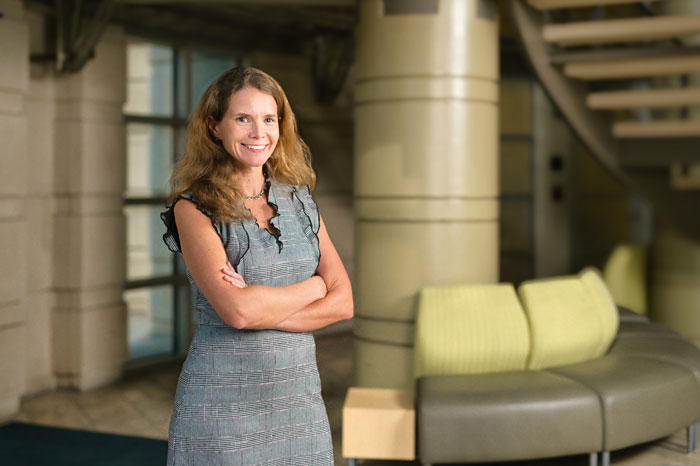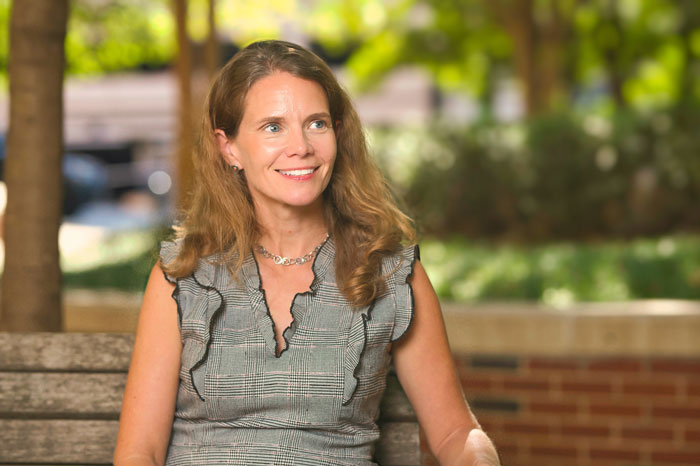 On July 1, 2022, Renee Heffron, Ph.D., MPH, joined the Heersink School of Medicine as the new director of the Center for AIDS Research (CFAR), one of the first seven CFARs established by the National Institutes of Health in 1988. Heffron says she is excited by the opportunity to build on the center’s 35-year history while fusing it with even higher levels of community engagement, partnerships, and inclusion to bring a wide variety of perspectives to the center’s work.
On July 1, 2022, Renee Heffron, Ph.D., MPH, joined the Heersink School of Medicine as the new director of the Center for AIDS Research (CFAR), one of the first seven CFARs established by the National Institutes of Health in 1988. Heffron says she is excited by the opportunity to build on the center’s 35-year history while fusing it with even higher levels of community engagement, partnerships, and inclusion to bring a wide variety of perspectives to the center’s work.
“The Center for AIDS Research has such a strong history,” says Heffron, who previously served as a member of the faculty of Global Health at the University of Washington. “It began with a strong foundation in basic science and discovery, and Dr. Michael Saag (founding co-director of the center who retired from UAB in 2021) added his very strong vision and focus on clinical care and clinical research. We’re going to carry on those strengths and then add to it in the realm of implementation science and community-engaged research.”
Heffron holds a Ph.D. from the University of Washington and an MPH from Tulane University. Dedicated to HIV research throughout her career, she also brings a global perspective through her affiliation with the International Clinical Research Center and partnerships throughout Africa.
She says she was drawn to the chance to work in a part of the United States with unique challenges around HIV. “To be able to work in this region, which is really the hardest hit in the country in terms of HIV and new infections, felt like a really important opportunity,” she says.

“Society plays a big role in the way people get or don’t get care,” Heffron continues. “It’s about access and how the overlay of poverty and complicated lives prevent people from being able to come into the clinic, advocate for themselves, and receive care. We’re focusing on how to leverage communities, families, friends, and peers to support people in accessing HIV prevention services and sustaining their treatment.”
Heffron’s goals for her future research include focusing on new forms of HIV prevention and prevention delivery systems to improve access to people in a wide variety of life circumstances. “Medications have changed so much since the epidemic began, but it’s still at least one pill a day if not more for some people, and that can be challenging,” Heffron says. “But there’s a lot of great data looking at injectable antiretrovirals for treatment and prevention. We are also looking a monthly pill, or an injection that’s every six months instead of every two months, trying to reduce barriers to access.”
Heffron sees the promise for alternate models of care coming from an inclusive approach to the center’s work. “I’m excited about the way we have started to engage and incorporate community voices and ideas into our research,” she says. “We’re putting people living with HIV and at risk for HIV at the table and giving them a voice. We’ve done it in some of the trials I’ve been involved with, we’ve done it with global community advisory groups, and a lot of the investigators are doing it in Alabama by having co-investigators from different communities, organizations, or even the state public health department. We want to have all those voices represented and then find the way forward together.” – Rosalind Fournier